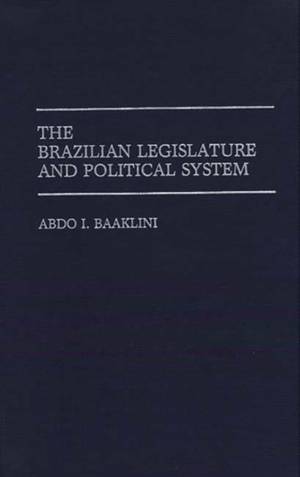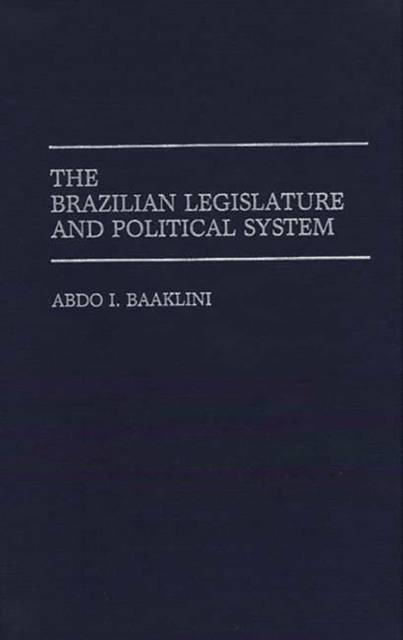
- Afhalen na 1 uur in een winkel met voorraad
- Gratis thuislevering in België vanaf € 30
- Ruim aanbod met 7 miljoen producten
- Afhalen na 1 uur in een winkel met voorraad
- Gratis thuislevering in België vanaf € 30
- Ruim aanbod met 7 miljoen producten
Omschrijving
The Brazilian experience is a pace setter in the transition from an authoritarian regime to the establishment of stable and democratically responsible political institutions. This insightful analysis, based on decades of field work, is the very first of its kind on a legislature outside the United States. Moreover, it addresses important issues regarding the role of executive and congressional bureaucracies in the system of government. There is no other book like this. It is very useful for understanding the Brazilian military regime and how Brazil emerged from it. The author, because of long association through a research project of his university with the Brazilian Congress, is in a unique position to study it in depth. Robert Alexander Rutgers University
This in-depth report opens with a brief history of the presidential system of government in Brazil, a description of political parties, and the bureaucracy. The first chapters show how the military regime tried to reformulate the political system and how these changes affected Congress and its ability to discharge constitutional mandates. The next chapters analyze the congressional bureaucracy, its modernization of informational capabilities, and the workings of Congress in detail. The final chapters examine changes in Congress when developing new policy and when drafting a new constitution. The study closes with a discussion of the main characteristics of the new constitution and an assessment of the overall performance of Congress and the presidential system in Brazil. This inside analysis is based on decades of field work and is intended for students of comparative government, public policymaking, and Latin American studies.Specificaties
Betrokkenen
- Auteur(s):
- Uitgeverij:
Inhoud
- Aantal bladzijden:
- 256
- Taal:
- Engels
- Reeks:
- Reeksnummer:
- nr. 298
Eigenschappen
- Productcode (EAN):
- 9780313284502
- Verschijningsdatum:
- 22/07/1992
- Uitvoering:
- Hardcover
- Formaat:
- Genaaid
- Afmetingen:
- 156 mm x 234 mm
- Gewicht:
- 530 g

Alleen bij Standaard Boekhandel
Beoordelingen
We publiceren alleen reviews die voldoen aan de voorwaarden voor reviews. Bekijk onze voorwaarden voor reviews.









